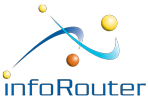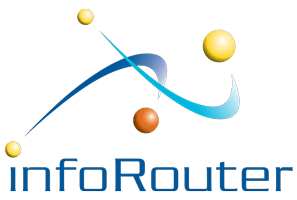If HP knew what HP knows, it would be three times more profitable
Lew Platt, former CEO of Hewlett-PackardLew Platt, former CEO of Hewlett-Packard, famously stated, “If HP knew what HP knows, it would be three times more profitable.” This quote underscores the critical importance of effective knowledge management within a company. It highlights that organizations often possess vast amounts of valuable information, but without the proper tools and processes to manage and share this knowledge, much of it goes untapped. By implementing a powerful knowledge management system, companies can unlock the potential of their internal information, improving decision-making, increasing efficiency, and ultimately driving profitability. Ensuring that employees can access and use the knowledge the company already possesses can lead to significant improvements in performance and innovation.
What is Knowledge Management Software?
Knowledge Management Software (KM software) is a systematic solution for creating, capturing, storing, and sharing organizational knowledge to improve decision-making and operational efficiency. Tools like the infoRouter Document Management System serve as an essential platform, offering secure and centralized storage to facilitate the easy retrieval and distribution of knowledge. This is crucial for addressing knowledge gaps and fostering collaboration and innovation within businesses. With infoRouter, organizations can efficiently manage their collective knowledge to drive better business outcomes.
The Importance of Knowledge Management in Modern Organizations
In today’s digital landscape, effective knowledge management is crucial for optimizing business processes and improving overall operational efficiency. A robust Knowledge Management System (KMS) like infoRouter ensures that key documents, information, and intellectual capital are securely stored and easily accessible. By using infoRouter’s advanced search features and robust access controls, businesses can ensure smooth knowledge transfer across departments, vital for improving decision-making, driving innovation, and maintaining operational efficiency. A strong knowledge management platform helps bridge knowledge gaps, ensuring all employees have access to the relevant knowledge they need to perform their jobs effectively.
Types of Knowledge Managed
- Explicit Knowledge: Easily documented and shared, explicit knowledge includes reports, manuals, and guidelines. infoRouter serves as a digital knowledge repository where this information can be stored in centralized, searchable libraries.
- Tacit Knowledge: Tacit or tribal knowledge is harder to document, but infoRouter facilitates sharing by providing collaboration tools and version control. This allows employees to collectively refine and share tacit knowledge, making it easier to capture for future use.
- Implicit Knowledge: infoRouter Knowledge Management Software ensures that even unstated knowledge can be captured by tracking changes, creating version histories, and organizing employee insights. This helps prevent knowledge gaps that arise from unshared implicit knowledge.

How Knowledge Management Software Streamlines Business Processes
- Knowledge Creation: infoRouter’s knowledge management software provides tools for document creation and collaboration, enabling employees to generate new ideas and insights. Workflow Automation streamlines the creation process, allowing for the collaborative refinement of documents.
- Knowledge Storage: infoRouter excels in storing knowledge securely. As a comprehensive knowledge management solution, infoRouter systematically categorizes and stores knowledge, enabling quick access when needed and minimizing knowledge gaps.
- Knowledge Sharing: With infoRouter’s advanced document sharing features, organizations can share knowledge across departments. The secure access controls ensure information is accessible while maintaining strong security and compliance standards. This facilitates seamless knowledge sharing across the business.
- Knowledge Application: infoRouter empowers businesses to apply stored knowledge effectively by ensuring critical information is readily available. Whether used for problem-solving, improving business processes, or decision-making, infoRouter enables users to apply knowledge to drive innovation and enhance business outcomes.
Essential Knowledge Management Software Tools for Business
- Knowledge Management Systems (KMS): infoRouter serves as a comprehensive KMS, centralizing the storage and distribution of knowledge across the organization. This helps manage valuable information while preventing knowledge gaps.
- Document Management Software (DMS): As a robust DMS, infoRouter ensures that explicit knowledge is categorized, stored, and easily retrieved by employees.
- Collaboration Software: infoRouter’s collaboration tools, including version control and workflow automation, encourage teamwork and efficient knowledge sharing. These tools make it easy for employees to collaborate on documents, share ideas, and track progress.
Best Practices for Implementing Knowledge Management Initiatives
- Establishing a Knowledge Culture: infoRouter supports a knowledge-sharing culture by providing a centralized platform where employees can access and contribute to the organization’s collective knowledge. Its role-based access ensures that information is shared securely and appropriately, ensuring no knowledge gaps hinder business growth.
- Encouraging Knowledge Sharing: With seamless document collaboration, workflow automation, and version control, infoRouter encourages knowledge sharing at all levels of the organization. This helps fill knowledge gaps and ensures that critical information is distributed effectively.
Knowledge Management Across Industries
infoRouter is a flexible solution that supports KM initiatives across various industries, addressing unique challenges and requirements.
- Life Sciences: Customers in the life sciences field rely on infoRouter to manage and share accurate research findings that are critical to scientific collaboration. With infoRouter, research teams can ensure that sensitive data is securely stored, easily accessed, and quickly shared with stakeholders, maintaining the integrity of ongoing research efforts.
- Regulated Industries: In highly regulated industries, infoRouter ensures that employees have immediate access to essential “policies and procedures” documents. By providing version control, audit trails, and robust security features, infoRouter helps these organizations stay compliant with industry regulations, such as HIPAA, ISO, and SOX, while ensuring employees always reference the most up-to-date documentation.
- Manufacturing: In the manufacturing sector, infoRouter helps streamline processes by managing production manuals, compliance certifications, and quality control documentation. Employees can easily retrieve critical documents from a central repository, minimizing downtime and ensuring smooth operations on the production floor.
- Financial Services: Financial institutions use infoRouter to manage sensitive client data, regulatory compliance documents, and internal policies. The system provides secure access controls, ensuring that only authorized personnel can access confidential data, while maintaining compliance with financial regulations like SEC and GDPR.
- Education: Universities and educational institutions leverage infoRouter to organize research papers, student records, and faculty guidelines. The system enables efficient collaboration among researchers and faculty, while students can access academic resources and administrative documents, improving the overall learning experience.
- Customer Service: In customer service sectors, infoRouter’s centralized knowledge repository allows representatives to quickly access accurate and up-to-date information, improving service quality and response times. This helps prevent inconsistencies in customer interactions, streamlines business processes, and ensures domain expertise is captured and shared effectively.
Whether it’s supporting life sciences, financial services, or manufacturing, infoRouter adapts to the specific needs of each industry, ensuring that knowledge is accessible, secure, and easy to manage across departments.
Automating Knowledge Processes with Workflow Automation Software
infoRouter automates many aspects of knowledge management, from document categorization to workflow management. Its automation features ensure that knowledge flows smoothly throughout the organization, reducing the need for manual intervention and improving overall business operations. By automating knowledge processes, infoRouter helps ensure that gaps in knowledge are identified and addressed in real-time.
Challenges in Knowledge Management Implementation
Despite the advantages, implementing KM can pose challenges, but infoRouter helps address these issues:
- Ensuring Data Quality and Relevancy: infoRouter’s version control, audit trails, and regular document reviews help maintain data quality. This ensures that outdated or irrelevant information is removed, while valuable knowledge is continuously updated. These features ensure no knowledge gaps emerge from incomplete or outdated information.

The 4 C’s of Knowledge Management
- Creation: infoRouter’s knowledge management software enables the creation of new ideas through collaboration and document development. This helps generate and refine valuable intellectual capital.
- Capture: Once created, knowledge must be captured and stored properly. infoRouter organizes knowledge into structured repositories, ensuring no critical insights are lost.
- Curation: infoRouter maintains the relevance of stored knowledge with version control and audit trails. This ensures outdated information is archived, and only the most current, useful knowledge is available.
- Collaboration: infoRouter promotes collaboration by enabling teams to work together in real-time, ensuring that knowledge is effectively shared across the organization.
The 5 Steps of Knowledge Management
- Knowledge Creation: infoRouter supports the creation of new knowledge by enabling document collaboration and workflow automation. This allows teams to work together to generate and refine ideas.
- Knowledge Capture: infoRouter captures knowledge by storing documents in a centralized repository. With advanced categorization and indexing, the system ensures easy retrieval and organization of valuable data.
- Knowledge Organization: infoRouter allows users to categorize, tag, and organize knowledge effectively. Its powerful search capabilities ensure that information is easily accessible when needed.
- Knowledge Sharing: infoRouter’s secure role-based access ensures that knowledge is shared appropriately within the organization. Its collaboration tools make knowledge sharing simple and efficient.
- Knowledge Application: infoRouter empowers businesses to apply stored knowledge to improve business processes, decision-making, and innovation. This drives better business outcomes by ensuring employees can access and apply knowledge when needed.
Training Employees for Effective Knowledge Access and Organizational Learning
A crucial aspect of knowledge management is ensuring that employees are trained to efficiently access and utilize the organization’s collective wisdom. With infoRouter’s central document repository serving as a single source of truth (SSoT), employee training becomes essential to maximize the system’s potential.
Employee training programs should focus on how to navigate and retrieve information from the repository, ensuring that all users can leverage the tools provided by infoRouter. By developing skills in knowledge retrieval, employees contribute to a culture of organizational learning, where accessing and sharing information becomes second nature.
Continuous learning is also vital, as infoRouter’s features evolve, and new workflows and best practices emerge. Organizations should implement ongoing training sessions to ensure that employees stay updated on the latest knowledge management practices and can fully harness infoRouter’s capabilities. This approach not only improves efficiency but also strengthens the organization’s collective wisdom, as employees become more adept at using the system for innovation and decision-making.
By positioning infoRouter as the central document repository and training employees to use it effectively, businesses ensure that every team member can contribute to a dynamic and responsive learning environment.
Benefits of Knowledge Management for Improving Customer Service
Implementing a robust knowledge management process is essential for improving customer service by providing the customer support team with quick access to relevant answers when assisting customers. With the right knowledge management capabilities in place, customer support agents can retrieve accurate answers in real-time, ensuring that customers receive timely and correct information.
A well-organized knowledge management system enhances customer experiences by streamlining the flow of company knowledge, enabling support staff to resolve issues with minimal delays. This leads to faster resolution of customer queries and reduces the likelihood of errors, improving overall service quality. By equipping customer support agents with easy access to the most up-to-date information, businesses can offer consistent, high-quality service across all interactions.
Enterprise Knowledge Management Software for Streamlining Organizational Knowledge
infoRouter serves as a comprehensive enterprise knowledge management software designed to manage and safeguard organizational knowledge across large businesses. By utilizing knowledge management tools like document management, version control, and advanced search features, infoRouter helps businesses build a culture of knowledge sharing while promoting faster decision-making.
The software acts as a central document repository that acts as a single source of truth (SSoT), enabling employees to access the most up-to-date information when needed. This centralization of corporate knowledge ensures that all departments can rely on accurate data and insights to drive innovation and enhance decision-making processes. When organizations implement infoRouter, they foster a culture of knowledge sharing, encouraging employees to actively contribute and access the knowledge base, which improves collaboration and efficiency.
Enhancing Business Efficiency with a Content Management System and Document Management
infoRouter’s Content Management System (CMS) and Document Management capabilities provide organizations with a structured method for managing digital assets and documents. By organizing, categorizing, and storing content in a centralized manner, infoRouter supports knowledge management by ensuring that relevant information is always easily accessible.
In addition to the CMS functionality, infoRouter’s robust security features protect sensitive corporate knowledge from unauthorized access. These features not only enhance security compliance but also build trust across departments, ensuring that knowledge is stored and shared safely. This structure aids in faster decision-making, as employees can quickly retrieve the necessary information without having to navigate complex systems, thus offering a competitive edge in today’s fast-paced business environment.
Building a Culture of Knowledge Sharing for Competitive Advantage
A successful knowledge management strategy hinges on a strong organizational culture that values collaboration and continuous learning. infoRouter enables organizations to cultivate a culture of knowledge sharing by providing tools that facilitate easy access to organizational knowledge.
By leveraging infoRouter’s features, businesses can embed knowledge sharing into the daily workflow, ensuring that employees are empowered to contribute to and access the knowledge repository. This promotes efficiency, supports faster decision-making processes, and helps the organization maintain a competitive edge.
Furthermore, the central document repository and knowledge management tools offered by infoRouter help businesses maintain operational consistency, improving both the quality and speed of decision-making across all levels of the organization.
Benefits of a well-designed Knowledge Management Strategy
- Cost Reduction: By centralizing knowledge and streamlining access to critical information, infoRouter reduces operational inefficiencies and unnecessary expenditures.
- Improved Reaction to Issues and Problems: With centralized and up-to-date knowledge at their fingertips, employees can quickly respond to problems, minimizing downtime and ensuring smoother operations.
- Improvement in Products and Services: By facilitating knowledge sharing and collaboration, infoRouter helps organizations continuously improve their offerings, leading to higher customer satisfaction and enhanced product quality.
- Promotion of Innovation: Access to comprehensive knowledge encourages creative solutions and innovation within the organization, helping businesses stay competitive in the market.
- Avoidance of Errors and Omissions: infoRouter ensures that employees access the most accurate and up-to-date information, reducing the risk of mistakes and ensuring compliance with regulations.
- Better Decision Making: Quick access to relevant knowledge allows for informed decision-making, improving both strategic and operational outcomes.
- Increased Organizational Efficiency: infoRouter centralizes document storage and enables quick access to knowledge, reducing the time employees spend searching for information. This boosts efficiency and prevents the emergence of knowledge gaps.
- Enhanced Customer Service: infoRouter enables customer service teams to access up-to-date knowledge, allowing them to respond to inquiries quickly and accurately. By streamlining knowledge sharing, infoRouter ensures customer-facing employees are always equipped with the most current information.
- Improved Employee Experience: infoRouter empowers employees by providing access to a comprehensive knowledge base. This fosters better knowledge transfer between employees, reduces knowledge gaps, and enhances their overall experience and productivity.
Conclusion: Harnessing Knowledge for Innovation and Growth
infoRouter plays a critical role in helping organizations manage their knowledge effectively. By leveraging infoRouter’s powerful tools for creating, capturing, organizing, sharing, and applying knowledge, businesses can enhance productivity, drive innovation, and maintain a competitive edge. infoRouter helps bridge knowledge gaps, streamline business processes, and ensure compliance, enabling businesses to optimize their knowledge management strategies for long-term success.

